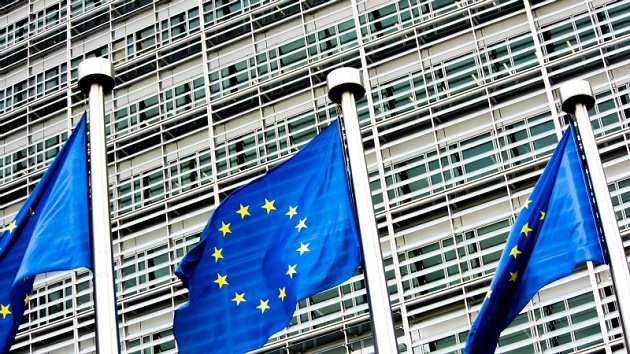In the last EU Council meeting of the year the Member States have been unwilling to address the refugee crisis and the four points Cameron asks in order for the UK to stay in the Union.
 The European Comission building in Brussels.
The European Comission building in Brussels.
The heads of state or government met in Brussels on 17 and 18 December, the last time this year, to discuss the most urgent topics such as migration, energy and the response to terrorism.
There was much expectation about the results of the gathering, especially because the EU Council was also supposed to talk about the letter David Cameron had sent in November to the President of the EU Council, Mr. Donald Tusk, that contained the reform demands for Britain to consider remaining in the European Union.
However, there was no deal on the UK’s demands. They are going to “work closely together to find mutually satisfactory solutions in the four areas”, informs the press release. The discussions are now postponed to the next EU Council meeting in February 2016 and there is no real roadmap towards this future deal.
“Member states gain time in the UK talks” or “The summit that wasn’t”, the EU observer’s and Politico’s headlines were very explicit.
Cameron’s 4 points are tough on the European Union and would require some big reforms. Many people in the media think that probably the 27 member states will be open on the fourth point (the immigration of EU to UK) if Cameron makes concessions on the other three points (economic governance, competitiveness and sovereignty).
THE REFUGEE CRISIS... OR KEEPING SCHENGEN ALIVE?
The other relevant topic, the refugee crisis, was presented as “unprecedented migratory flows”. The word “refugee” does not appear on the press release until the mention of the EU-Turkey Action Plan that was agreed at the end of November. It seems now the problem is only about border security: “Above all, we are failing to protect our external borders”, stated Mr. Tusk.
Measures are being taken to keep the Schengen area safe. The European Commission has been working on proposals for a European Border and Coast Guard and a Schengen Borders Code. The EU Council will examine the propositions in the following six months. The new border agency would have around 1500 guards that would be under the European Commission’s authority, and would not need the consent of the Member States to act.
On refugees, the only progress is the petition to the European Commission to “rapidly review the Dublin system”.
More than 1 Million refugees have arrived to European countries in 2015.
POLICY AND POLITICS
Turkey is still seen as a good ally to counter the “migrant flow”. Mr. Erdogan is to receive a €3 billion deal to improve the refugee camps in Turkey’s territory. In exchange for the country’s efforts, Erdogan’s government demands that the EU start resettling the UN designed refugees and, above all, wants the EU to resume the membership talks.
Ironically, this “ally” is the one who is allowing Daesh to keep going and hence, increasing the number of people fleeing Syria and Iraq. Some experts explain that Daesh is able to sustain itself thanks to the gas they smuggle through the Turkish border and that is sold in the country’s black market. “If Turkey closed its border, DAESH would collapse”, said Pierre Terzian, director of Petrostrategies in an interview for the Belgian newspaper La Libre, but “Erdogan is blackmailing the EU and the US because he reproaches them for arming the Kurds”.
‘TIS THE SEASON
Other topics were discussed but without much decision. Most of the points are to be debated in February or in the following six months, during the Netherlands’ presidency of the EU Council. The urgent points were not so urgent at the end of the day. And although the UK discussion went over Thursday’s dinner, there was no agreement either.
On Friday, at 3pm, the EU Council closed by issuing its press release. It looks like the EU leaders wanted to rush back home.

Las opiniones vertidas por nuestros colaboradores se realizan a nivel personal, pudiendo coincidir o no con la postura de la dirección de Protestante Digital.
Si quieres comentar o